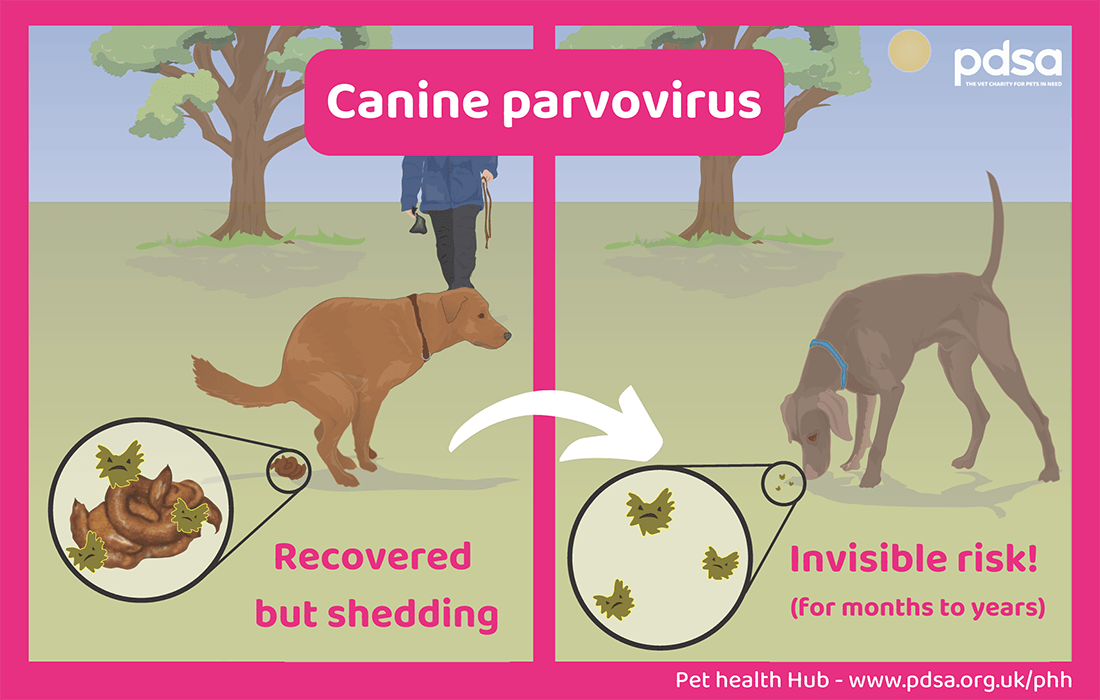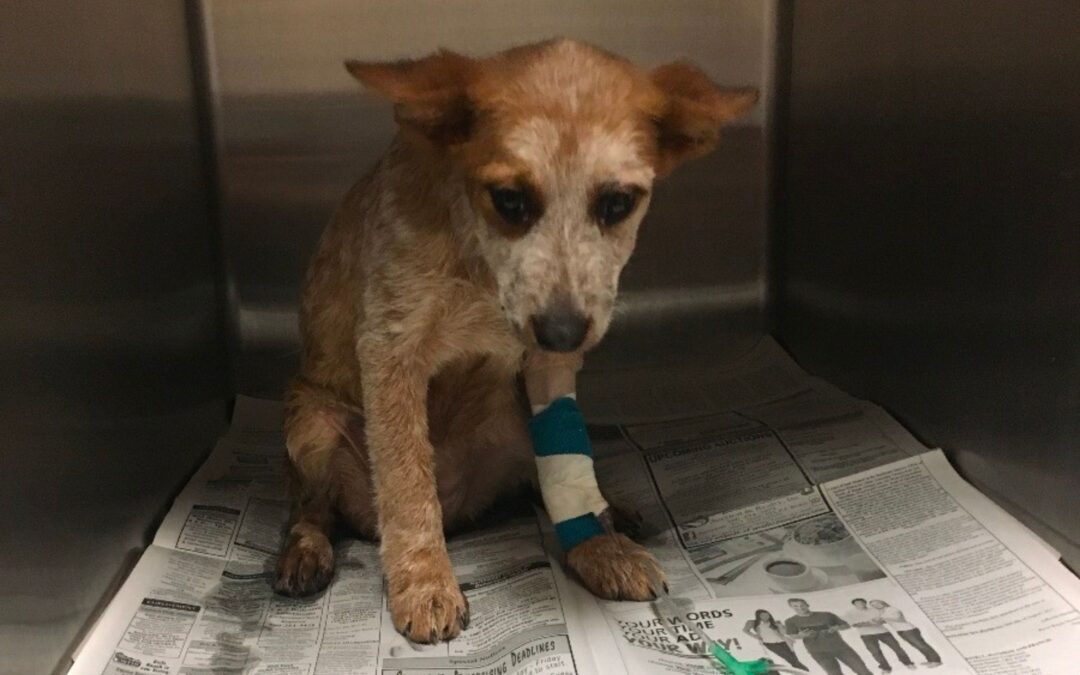Parvovirus is a virus passed in feces from animal to animal. Infected dogs are asymptomatic for three to seven days while they spread the virus before exhibiting systems themselves. Once they start exhibiting systems they vomit profusely which is followed in the following one to two days by bloody diarrhea. The dog requires hospitalization at this point because they will not hydrate on their own and require fluid therapy. Parvovirus primarily attacks the intestinal tract and bone marrow. This prevents the body from producing white blood cells, absorbing nutrients, and preventing fluid loss into stools.
While the virus is passed through feces, it can be present even though no feces is immediately visible. Shed virus can be left behind after feces has been removed and can live in the environment for months to years. Parvovirus is resistant to many disinfectants except diluted bleach and some other specialized veterinary cleaners.
When your pet is being treated for parvovirus it can be expensive as the veterinarian and staff must spend a great deal of time continuously cleaning the room where the infected dog is housed. They must also clean themselves with bleach every time they exit the room. They must continuously give the infected dog fluids and electrolytes to replace those lost from diarrhea and vomiting. They must administer antiemetics to minimize vomiting. The cost can be anywhere from the hundreds into the thousands of dollars for full treatment depending on case severity. The survival rate is around 75-80% for dogs hospitalized early and watched closely.
The best way to treat parvo is to avoid getting it in the first place. The core vaccine series for dogs includes a parvovirus vaccine. It usually goes by an acronym like DAPP, DHPP, DA2PP, etc. Here at Lone Tree we administer DAPPV+L4 as part of our normal vaccine series for dogs. This vaccine also includes protection from distemper, adenovirus, parainfluenza, and leptospirosis. This vaccine should be given to puppies as recommended by our doctors. The vaccine must be given to puppies on a regular schedule and on time; if the boosters are late the series must be restarted. Puppies should also only socialize with fully vaccinated dogs until they are able to be fully vaccinated themselves. This includes protecting them from areas where dogs normally frequent, such as dog parks and rest stops. Even though there may not be dogs present, puppies and other dogs could contract parvo from any feces left behind.

